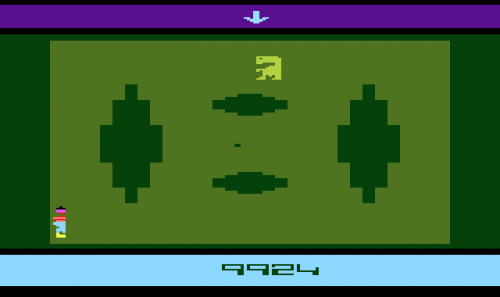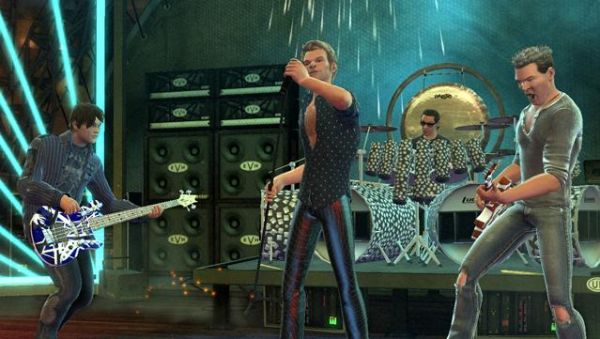
Hopefully you never brought this version of ET home.
The music game genre was certainly not immune to this effect. The early games were groundbreaking, and killer new features were added with each new release, including better multiplayer modes, downloadable content support, and the big one, four person band play. But once Rock Band and Guitar Hero World Tour hit, the formula didn’t change in any significant way. Other than a few tweaks here and there, you were basically playing the same exact game from late 2008 through the end. The only difference was the selection of songs, and here there was a point of diminishing returns. Playing your first fifty songs on plastic guitars is great, but after several hundred more, the novelty wears off. Quite simply, the later games in the genre didn’t provide enough new gameplay for consumers to smack down large amounts of money. Just as with Atari, confidence in the music game genre plummeted.
Highly publicized failures have a similar effect on consumer trust. Atari’s epic mishandling of Pac-Man was a huge black eye to the company. What should have been a sure thing ended up costing the company millions in losses. The rush job on the ET game was a similar fiasco. Atari paid through the nose for the rights, then put an unplayable mess on shelves, relying on their name and the Christmas rush. The gambit failed miserably. In 1983, the press was loudly proclaiming the death of the video game industry.

Who are these people, and what did they do with Van Halen?
A few specific titles in the music genre stick out as failures, though not on a scale like that of Pac-Man and ET. Guitar Hero Smash Hits was notorious for being a double dip for Activision. The songs were the same that fans had already played, albeit with the original tracks and added drums and vocals. Gamers wondered why they should pay full price for what they had previously purchased. The band-centric Van Halen game was doomed from the start, being offered as a freebie with purchase of Guitar Hero 5. Leaving out half the band’s catalog and using the modern look of the band members instead of the iconic 80s versions were both poor choices. Harmonix fared better, but Rock Band 3’s sales failures were well documented, acting as a death knell for the genre among the gaming press.
While the mid 1980s were a bleak time for video games, eventually, things got back on track. Nintendo arrived on the scene, and the industry has been solid ever since. While plastic-instrument music games are finished at the moment, other music game genres, notably the dance game, remain popular and successful. More Rock Band downloadable content is released every week, so someone out there is still buying new songs. While Guitar Hero and Rock Band may never return to their past glory, they have had a tremendous impact on video games as a whole. Who knows? Perhaps twenty years from now, people will be reminiscing about the good old days, and something like Retro Hero or Band Classics will start the cycle all over again.